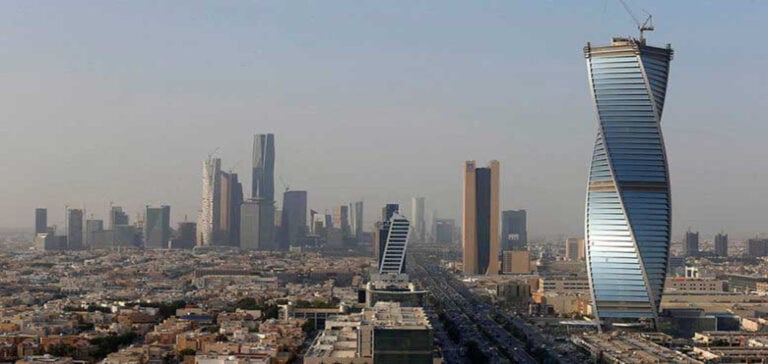A Saudi Arabian budget review was recently announced for the current year. It is now forecasting a deficit due to increased spending and falling oil revenues. This follows the initial announcement of a surplus of 16 billion Saudi riyals ($4.27 billion) in 2023, which has been replaced by a forecast deficit of 82 billion Saudi riyals ($21.86 billion), equivalent to 2% of GDP.
New forecasts: an expected deficit of 82 billion Saudi riyals
The Gulf monarchy, the world’s leading crude oil exporter, had initially forecast a surplus of 16 billion Saudi riyals ($4.27 billion) in 2023. However, new forecasts indicate an expected deficit of 82 billion Saudi riyals ($21.86 billion), equivalent to 2% of GDP, the ministry said late Saturday in a statement. For the following year, a deficit of 79 billion riyals, or 1.9% of GDP, is also expected, according to the same source.
Contrast with recent budget surplus
Last December, however, Riyadh announced its first budget surplus in almost ten years, thanks to soaring oil prices following the Russian invasion of Ukraine. This year, however, oil revenues have fallen by 17% due to the drop in prices and the reduction in Saudi production decided by the authorities in an attempt to boost prices. Production currently stands at nine million barrels per day, down two million barrels on the same period a year earlier.
Continuation of the Vision 2030 reform program
At the same time, the kingdom is pursuing its ambitious but costly Vision 2030 reform program, under the aegis of Crown Prince Mohammed ben Salmane, which aims to diversify its oil-dependent economy. In its press release, the Ministry of Finance welcomed the growth in the non-oil sectors, with an 11% increase in revenues in the first quarter.
Committed to economic growth and diversification
The government “will continue to implement fiscal and economic structural reforms to contribute to the development and diversification of the Saudi economy and stimulate growth, while preserving fiscal sustainability”, said Finance Minister Mohammed al-Jadaan. His department expects budget deficits to persist until 2026, according to the statement.






















